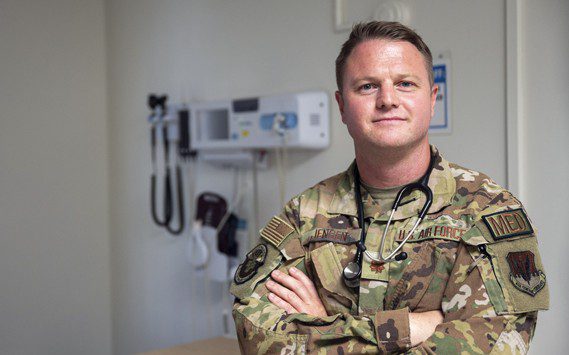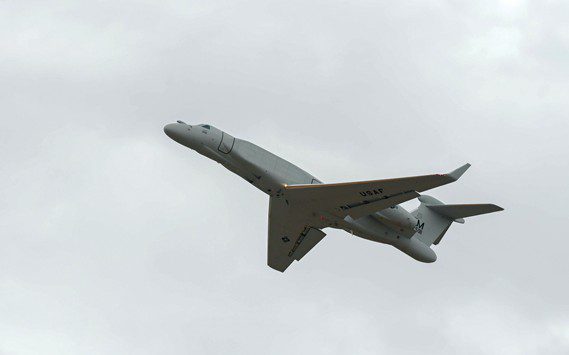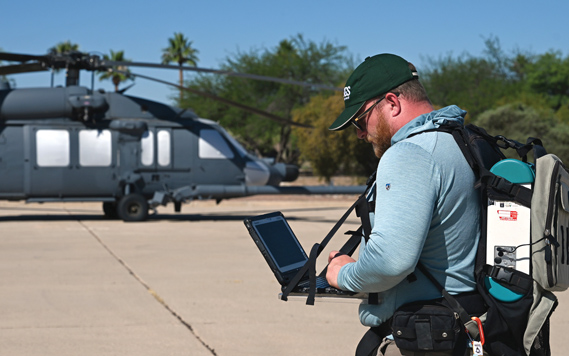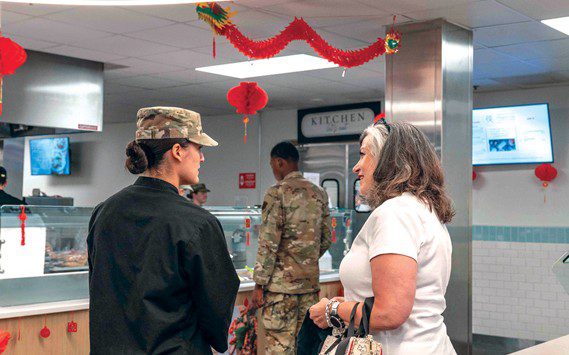The Defense Department has signed up an additional 70 government organizations, nonprofits and private sector companies to participate in its Military Spouse Employment Partnership program. With the new additions, there are now more than 600 such organizations committed to recruiting, hiring, promoting and retaining military spouses.
Gilbert R. Cisneros Jr., the undersecretary of defense for personnel and readiness, welcomed the new companies into the partnership during an induction ceremony at the three-day MSEP Engage 2022 event in Northern Virginia.

“I want to welcome and congratulate and thank the more than 70 new employer partners who have joined the Military Spouse Employment Partnership here today,” Cisneros said. “Today we’re celebrating your commitment and induction, and this marks the culmination of a robust vetting process, all of which clearly demonstrated that you, the class of 2023, are truly committed.”
Since the MSEP program began in 2011, the program’s partnering efforts have helped connect more than 250,000 military spouses to employment opportunities across all industry sectors, Cisneros said.
“You’ve joined an elite group that opens you to the military spouse community and the diverse skills and talents that they offer,” he said. “With these latest inductions we’re up to more than 600 total MSEP partners since we started this program back in 2011.”
Additionally, more than 40,000 military spouses were reported as hired by MSEP partners since last October, Cisneros said.
“[That’s] our largest hiring level ever,” Cisneros said. “This is a testament to all of you, our enduring and new MSEP partners, and I can’t wait to see those numbers in 2023.”
This week during the annual MSEP Engage 2022 event, new and long-time MSEP partners meet for orientation sessions where they discuss how new partners can engage with the military spouse community. During the second day of the event, partners engage in networking and breakout sessions to focus on areas such as recruiting military spouses, understanding the challenges that military spouses face, and making companies more friendly to military spouses.
This year’s event also features, for the first time, a third day where MSEP partners will meet with military spouses seeking employment.
Military families, like most civilian families, need both partners working to make ends meet. Because of numerous moves a family must endure in a military career, it’s often a challenge for a service member’s civilian partner to find sustained, meaningful employment, said Patricia M. Barron, the deputy assistant secretary of defense for military community and family policy.
“Our unemployment rate kind of hovers around 21%, which is far above the civilian rate, as many of you know.”
As a military spouse herself, Barron said with each military move she made, she had to rely on her own creativity and resilience, along with the generosity of those she found work with.
“I do owe my employers so much because of their ability to support me and be flexible with my needs,” she said. “Partners, please know you make spouses feel very special. You give them a sense of relief, but more importantly, you give them a sense of self … I encourage you to go explore, get creative, get to know the military spouses that you hire, because you’ll be very, very glad that you did.”
Programs like MSEP support the goals of Secretary of Defense Lloyd J. Austin III to better support taking care of people across the force.
“Military spouses provide the strong foundation upon which their loved ones in uniform stand — and our communities and our nation rely on their resilience,” Austin wrote last month in a memorandum to the force. “We owe them our energetic, unwavering support.”
Next week, more than 30 new employer partners will become part of a new initiative called “MSEP Small Business,” said Eddy Mentzer, the associate director of military community support programs.
Mentzer also said that in January, the department will put the first military spouse fellows into the DOD’s new Military Spouse Career Accelerator Program.
“Military spouses will be placed into 12-week fellowships where they will gain valuable skills while being compensated with the goal of full-time employment at the end of their experience,” Mentzer said.












